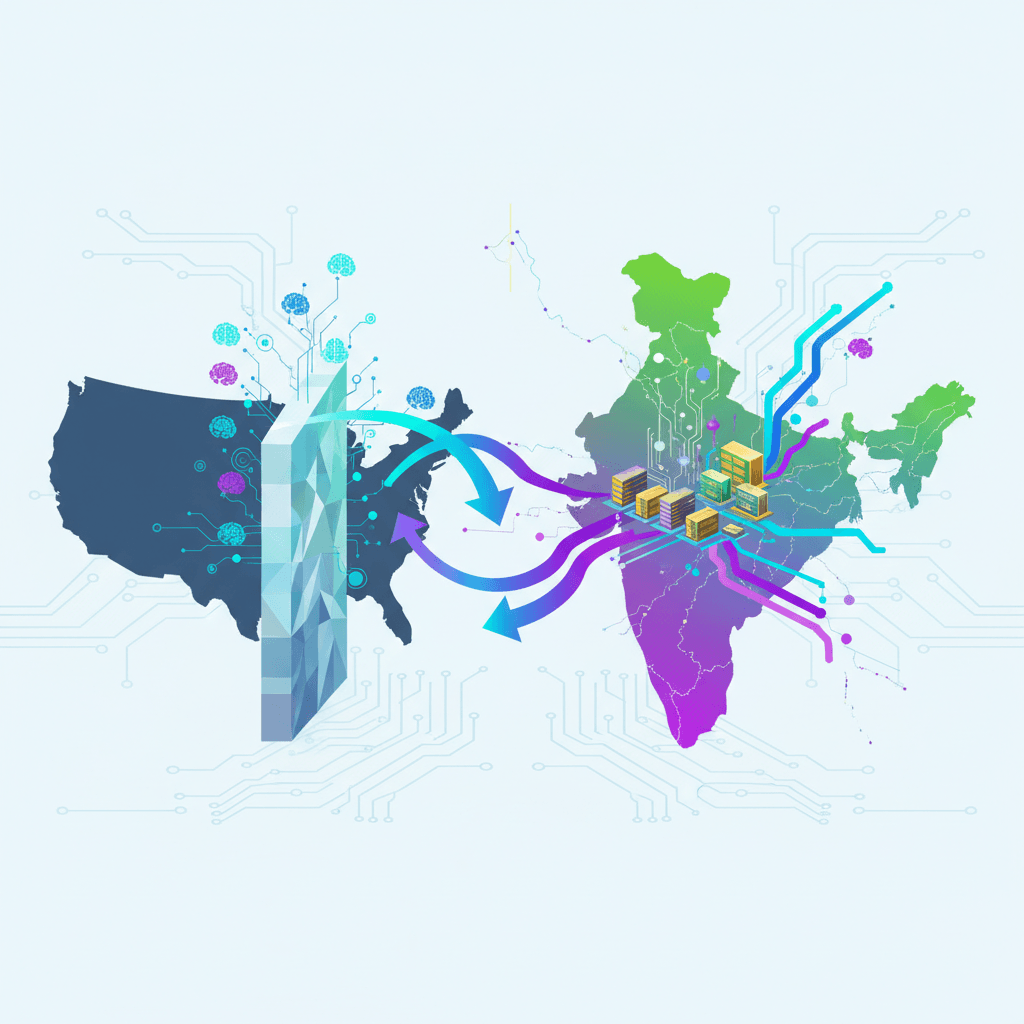H-1B Fee Hike Risks US AI Talent Drain, Boosts Offshoring.
The H-1B visa fee hike, meant to protect U.S. jobs, paradoxically risks accelerating offshoring and bolstering India's tech prowess.
September 30, 2025

A recent, dramatic increase in H-1B visa fees by the United States government has sparked a contentious debate, with Karnataka's IT Minister Priyank Kharge asserting that the policy will ultimately inflict more damage on the U.S. than on India. This perspective challenges the surface-level assumption that the fee hike, which disproportionately affects Indian tech professionals who are the largest recipients of the visa, is solely a setback for India. Kharge's argument centers on the intricate relationship between high-skilled immigration, corporate strategy, and the global flow of talent, suggesting that restrictive measures could backfire, accelerating the very job offshoring the policy ostensibly aims to prevent. The core of this debate lies in whether closing the door to foreign talent strengthens the domestic workforce or simply forces American companies to move jobs and innovation centers abroad to remain competitive.
According to Kharge, the logic that shutting the door on H-1B visas automatically creates jobs for Americans is flawed. Citing a Wharton study, he highlighted that for every 10 H-1B visas lost, nine jobs are subsequently moved abroad.[1] This points to a broader trend of outsourcing by U.S. companies, a practice driven by the need to manage costs and access a global talent pool. Statistics indicate that a significant percentage of U.S. companies, some reports suggesting as high as 66%, engage in outsourcing, with hundreds of thousands of jobs moving overseas annually.[1][2][3][4] The H-1B program has historically served as a mechanism for companies to keep specialized roles based in the United States. By making this significantly more expensive—with new fees skyrocketing to $100,000 per application from a previous range of a few thousand dollars—the policy may inadvertently push companies toward "extreme offshoring."[5][6][7] This would not only move the high-skilled tech job but also a host of related administrative and support positions, ultimately leading to a greater net loss for the American economy. Experts estimate that a significant cut in high-skilled immigrant workers could have a tangible impact on the U.S. GDP.[1]
The U.S. technology and artificial intelligence industries, long reliant on the H-1B program to fill critical talent shortages, are particularly vulnerable to the negative repercussions of the fee hike.[8][9] The program has been a vital conduit for attracting the world's brightest minds, with many of today's most prominent tech leaders, including the CEOs of Microsoft, Alphabet, and Tesla, having started their U.S. careers on an H-1B visa.[6][10][11] While tech giants like Amazon, Google, and Meta may have the financial capacity to absorb the new six-figure fee for top-tier talent, the policy is expected to disproportionately harm startups and mid-sized companies.[6][12] These smaller, often highly innovative firms are crucial to the dynamism of the tech ecosystem but lack the deep pockets to compete in what is now being described as a "spending game" for global talent.[12] Critics warn this could stifle innovation, slow economic growth, and ultimately weaken America's global edge in science and technology.[6] Furthermore, the policy risks triggering a "brain drain" as highly skilled foreign graduates of U.S. universities, facing a more difficult path to employment, are lured to other countries like the United Kingdom and Canada, which are actively creating more welcoming immigration policies to attract tech professionals.[5][13]
From the Indian perspective, the impact is viewed as manageable and could even present new opportunities. Priyank Kharge emphasized the resilience of Karnataka's IT sector, which is home to nearly 40% of India's global capability centres (GCCs).[1] These centers, which employ hundreds of thousands of professionals, are evolving from providing back-office support to becoming hubs for high-value research, development, and innovation.[7] The H-1B fee hike is expected to turbocharge the growth of these GCCs as U.S. firms shift more complex and critical functions to India to bypass the now-exorbitant cost of bringing talent to the U.S.[7][14] Indian IT services firms have already been strategically reducing their dependence on H-1B visas, with filings declining significantly in recent years as they focus on hiring more local talent in the U.S.[1][15] As a result, H-1B workers now constitute a very small fraction of the Indian IT workforce.[1] While some Indian officials have expressed concern over the potential impact on remittances and individual professionals, the broader consensus among many industry analysts is that the policy shift will accelerate India's ascent as a global hub for innovation.[1][16]
In conclusion, the assertion that the H-1B fee hike will hurt the United States more than India is rooted in a nuanced understanding of global business operations and talent mobility. The policy, intended to protect American jobs, risks creating a significant barrier for the U.S. tech industry, particularly for the startups and smaller companies that drive innovation. By making it prohibitively expensive to hire foreign talent onshore, the U.S. may be inadvertently encouraging companies to move not just jobs, but entire high-value operations, to more cost-effective and talent-rich environments like India. This could lead to a long-term decline in U.S. competitiveness in critical sectors like artificial intelligence. For India, the change could serve as a catalyst, solidifying its position as an indispensable partner in the global tech ecosystem and accelerating the "brain gain" that bolsters its own domestic innovation landscape. The ultimate outcome of this policy may well be a reshaping of the global tech world, validating the view that its most significant negative impacts will be felt within the borders of the nation that enacted it.